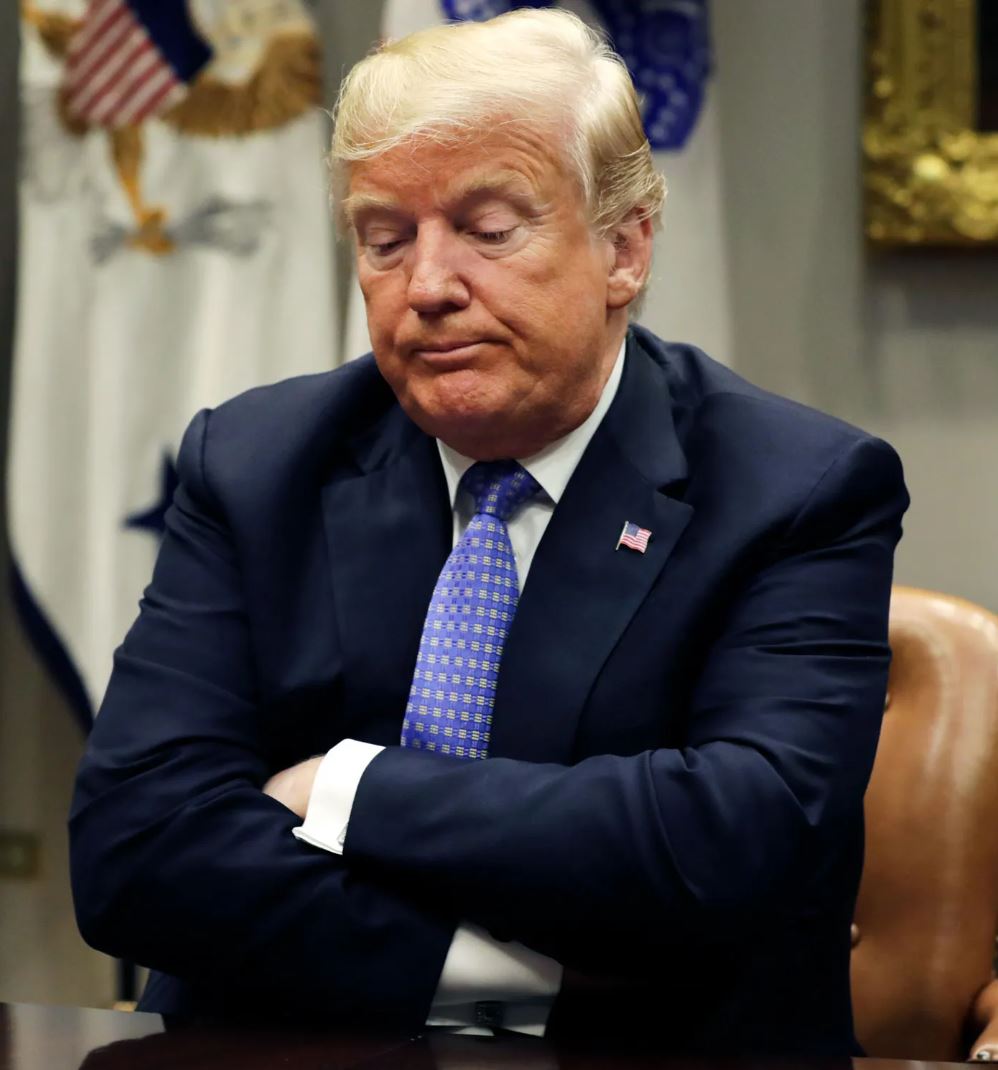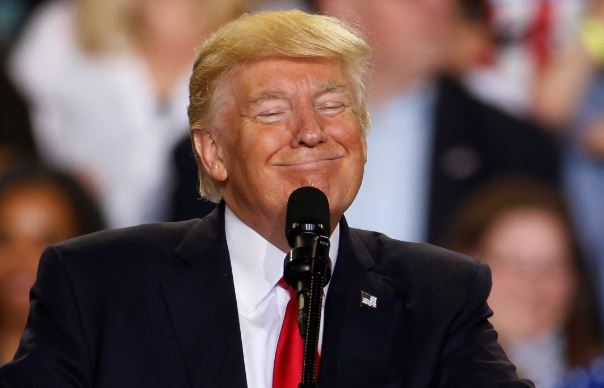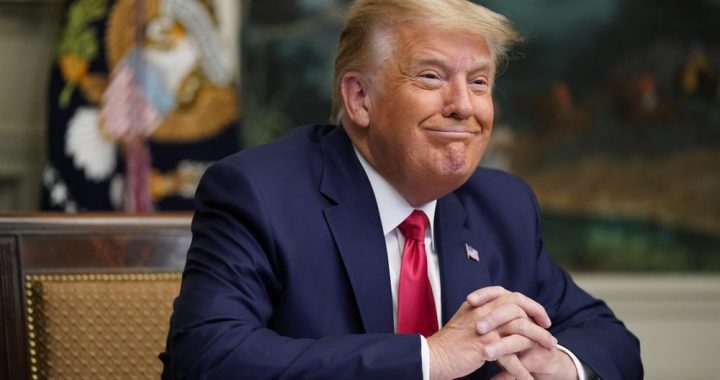
trump frowns
Prosecutors in Georgia are fast approaching a decision on Trump
There’s a long list of criminal investigations surrounding former President Donald Trump. The one closest to completion may be in Atlanta.
Fulton County’s district attorney, Fani Willis, launched her investigation shortly after Trump made an infamous call to Brad Raffensperger, the Georgia secretary of state, asking him to “find” enough votes to reverse Trump’s 2020 electoral loss to now-President Joe Biden.
Court filings indicate the DA’s investigation expanded to include Trump’s allies who plotted to send fake electors to Congress on January 6, 2021, and hand Trump a second term.
Willis has swiftly moved the investigation forward. Over the past year, she empaneled a grand jury and fought court battles to ensure testimony from Gov. Brian Kemp; the state’s Republican Party chairman, David Shafer; Sen. Lindsey Graham of South Carolina; and more than a dozen others who spoke with Trump at the time. Two other high-profile witnesses who fought grand jury subpoenas, Mark Meadows and Newt Gingrich, have their cases before appeals courts.
Trump and the fake electors could face charges of election fraud, improperly trying to influence government officials, and criminal solicitation, according to an analysis from the Brookings Institution.

As of December, Willis has gotten testimony from most of the main players in Trump’s plot to overturn election results in Georgia. According to CNN, her office has been negotiating plea deals with participants in the fake-elector scheme.
If she’s going to bring indictments, they could come soon.
If Trump is getting indicted, he’ll almost definitely know first
A high-profile, lawyered-up person like Trump will almost definitely be aware an indictment is coming ahead of time.
Right now, a special grand jury — which is set to sit until May — is hearing evidence and testimony in the case. Once its work is concluded, it will prepare a report either referring or not referring the case to a regular grand jury, according to Ronald L. Carlson, a professor at the University of Georgia School of Law.
A regular grand jury, which sits for two months, would probably move swiftly, Carlson said, since it would have all the evidence painstakingly compiled by the special grand jury.
“The reason it’ll go very fast is the regular grand jury will have a transcript from the testimony of a laundry list of witnesses that have already testified to the special grand jury,” Carlson said. “Witnesses like the Georgia secretary of state, the Georgia governor, Senator Lindsey Graham, Michael Flynn, Rudy Giuliani, and others.”
If the regular grand jury returns an indictment, the Fulton County district attorney’s office would typically file it to court under seal. At that point, Carlson said, they’d tell Trump’s lawyers it was filed and give him an opportunity to turn himself in.
The prosecutor’s office might give Trump a few days to make arrangements and fly from his home in Florida to Georgia, according to Dmitriy Shakhnevich, a criminal-defense lawyer in New York who is a professor at the John Jay College of Criminal Justice. Unlike with some other people charged with crimes, there isn’t an immediate risk that Trump would try to overturn election results again anytime soon.
“If you have a crime of violence, then there’s a real risk — then they’re not going to be very flexible,” Shakhnevich told Insider. “They will tend to be flexible in a case like this. I can’t imagine they’d be too flexible. Maybe they’d give him a week to come in.”
If Trump is criminally charged and refuses to surrender, then he could be arrested. One way or another, he’d be required to travel from his home in Mar-a-Lago to a courthouse in Atlanta.

Trump could be extradited
If Trump is charged with a felony anywhere in the US, he can be arrested and extradited to wherever he is charged.
There’s been some speculation that Gov. Ron DeSantis of Florida might block extradition, but he doesn’t have any power to intervene. The extradition process is laid out clearly in Article 4, Section 2, of the US Constitution and clarified by federal laws.
“Assuming hypothetically that the president might be indicted on felony charges, he can’t escape justice by simply saying, ‘I’m not going to go to Atlanta,'” Carlson told Insider.
A law-enforcement department in Atlanta — most likely the deputy sheriff’s office, Carlson said — would ask counterparts in Florida, like the Palm Beach sheriff’s office, to execute an arrest. Secret Service agents would probably come along with him, as Insider previously reported, but are unlikely to be involved in the arrest process.
Though Trump has repeatedly derided the investigation into his activities as politically motivated, he would have little success fighting an arrest and extradition, according to Shakhnevich.







